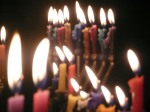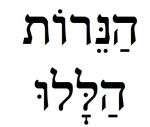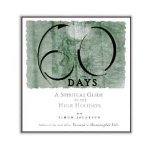
Posts Tagged ‘Religion & Spirituality’
We Were Slaves: Avadim Hayinu
March 30, 2012Words Matter
January 10, 2011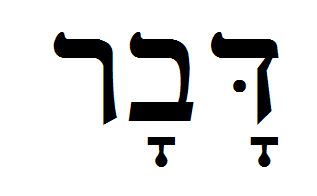 The Hebrew word davar means both “word” and “thing.” This is one of the first vocabulary words I teach my beginning Hebrew students. They are often surprised that this single Hebrew word carries both meanings.
The Hebrew word davar means both “word” and “thing.” This is one of the first vocabulary words I teach my beginning Hebrew students. They are often surprised that this single Hebrew word carries both meanings.
In the Jewish view, the words we speak are not just hot air. They are actual things that we create. Once we speak them, they go out into the world and we have no control over what happens with them next. A traditional metaphor about lashon ha-ra’: Think of emptying all the feathers out of a pillow into the wind; there’s no way to take them all back.
In Jewish practice we learn that every word we speak matters. Words can help and heal, words can hurt. Words can even kill.
The rabbis taught extensively about the sin of lashon ha-Ra’, which can be translated literally as “the language of evil” or “the tongue of badness.” Many call it “The Evil Tongue.” Or simply “Gossip.” Lashon ha-ra’ is generally defined as speaking badly about another person. Three people get hurt: the person speaking, the person listening, and the person being spoken about. Taking it further, the famous Chofetz Chaim taught that the best way to avoid lashon ha-ra’ is to avoid speaking about another person at all, even with good intentions. You never know how your words might be interpreted by others.
And yet the temptation to speak and listen to lashon ha-ra’ is huge. Often we do it by such habit that we don’t even notice. Every day Jews pray,
My Gd,
guard my tongue from evil
and my lips from speaking deceitfully.
To those who curse me, let my soul be silent;
and let my soul be like dust to everyone.
Last Night of Hanukkah: “These Candles”
December 8, 2010Finally, a translation of “hallalu”!
It means “these.”
In traditional Jewish practice HaNeirot Hallalu is recited immediately after lighting the Hanukkah candles. The first two words of this paragraph-long prayer — which occur twice there in the exact same form — are usually translated as “these candles.”
That second word, hallalu, is tantalizingly similar to Hebrew words meaning things like “shine brightly” and “sing praises.” However, as we discussed in my Advanced-Intermediate Hebrew class last night, the word doesn’t fit grammatically with these meanings, or with any Hebrew verb or adjective.
According to Klein: halah = m. & f. pronoun THAT. [Formed from the definite article ha… plus the deictic element …l. Compare with hallalu.] So “hallalu” is the plural pronoun, translated THESE.
Question: Why doesn’t the prayer use the more common plural demonstrative for “these,” i.e., “ha-eileh”?
Answer: I don’t know.
Still, it was extremely satisfying to find the correct translation. It was fun looking up the English word “deictic,” too.
After lighting the candles and reciting the blessings, and also after reciting HaNeirot Hallalu, it is traditional to sing songs such as Ma’oz Tzur, Mi Yimaleil, S’vivon, etc.
Last Three Days of the Jewish New Year Journey
October 5, 2010The first time I read 60 Days: A Spiritual Guide to the High Holidays, by Rabbi Simon Jacobson, it was summer 2006. I followed his suggestions for thinking hard about my life, my personal goals, and how to enjoy the Jewish new-year season more deeply. I made lists, wrote in my journal every day, read the daily essays, asked myself the daily questions, and did my best to do the daily exercises. It changed my life! And I learned a lot about the Jewish holidays, too.
Anyone can still sign up for Rabbi Jacobson’s free emails about the 60-day journey, even if you haven’t been following along over the past 57 days. Just click on the image of the book.
Tishrei 9: The Melting Heart
September 17, 2010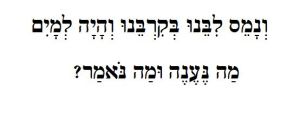 There are many things to say about Yom Kippur, which begins tonight at sundown. Yom Kippur is the holiest day of the Jewish calendar. We remove ourselves from the distractions of the material world and spend one whole day in prayer, traveling inward toward our purest spiritual selves and our true home in Gd.
There are many things to say about Yom Kippur, which begins tonight at sundown. Yom Kippur is the holiest day of the Jewish calendar. We remove ourselves from the distractions of the material world and spend one whole day in prayer, traveling inward toward our purest spiritual selves and our true home in Gd.
But I still have some Rosh haShanah liturgy on my mind as I approach the biggest Day of Awe. The Hebrew text above comes from one of the prayers we recite at Tashlikh, the ritual of symbolically casting away our sins of the past year into a body of water, which we performed nine days ago on Rosh haShanah. Although I’ve read them many times at Tashlikh in the past, these words struck me particularly deeply this year. As I stood on the shore of Walden Pond on the first of Tishrei and contemplated the chasm between the person I’ve been and the person I want to be, this simple cry to Gd jumped off the Hebrew page at me. In English:

